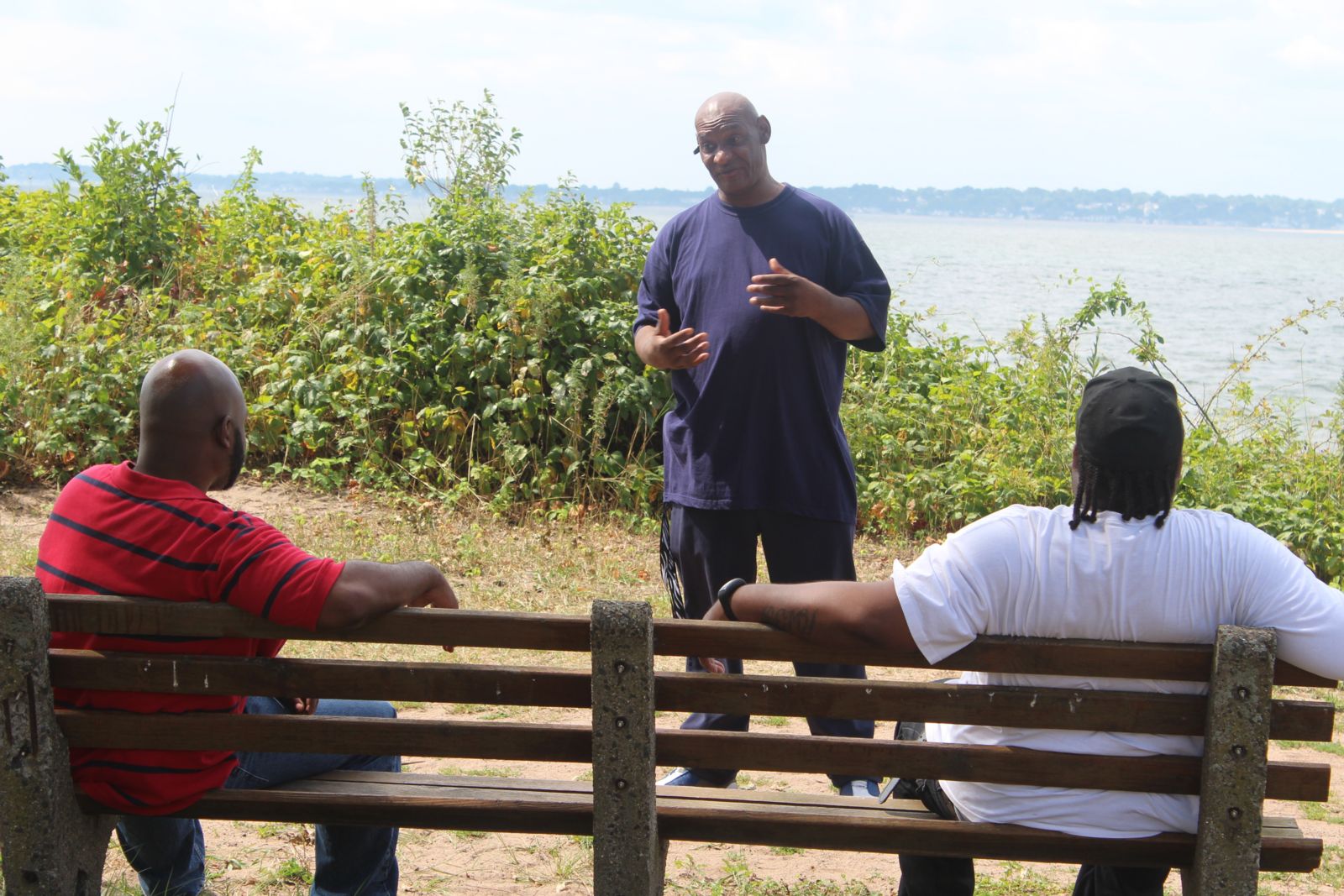Continuum of Care, Inc.’s mission is to enable people who are challenged with mental illness, intellectual disabilities, addiction, or homelessness to rebuild a meaningful life and thrive in the community.
Gary's Story
 Gary Stewart was lying in his prison bunk in 2008 when he found himself unable to move, though he needed to use the restroom desperately.
Gary Stewart was lying in his prison bunk in 2008 when he found himself unable to move, though he needed to use the restroom desperately.
A diabetic attack had temporarily paralyzed him.
The diabetes diagnosis was yet another addition to the series of setbacks Gary had experienced in his life up to that point.
A former high school and college football star who went on to play at the professional level for a couple of U.S. Football League teams, Gary eventually made it all the way to the NFL in the 1980s. He played five games for the Miami Dolphins before breaking his ankle in 10 places.
A few years after his career-ending injury, both of his parents died in close succession and he lost his will to live. He found solace in drugs and alcohol but those vices led him to jail. Gary’s depression worsened with diabetes being added to his burdens.
After incarceration, several drug treatment programs, and many relapses, Gary eventually got supportive housing through human services nonprofit The Connection. He was later hired as a Recovery Support Specialist through Continuum’s South Central Peer Services.
One day, Elsa Ward, assistant director of South Central Peer Services, had to send him home from work because of diabetes-related complications. He was in such bad shape that he could not come into work the following day. Elsa insisted he speak to Shelley Halligan, director of Health and Wellness.
“I tell anyone who talks to me about Continuum that I love them dearly because they have given me my life back. Shelley Halligan and Elsa Ward – it started with them.”
Shelley put Gary on a diet plan that required cutting back on unhealthy foods like fried chicken, and incorporating more greens. She encouraged him to walk and exercise more. He began attending the Health and Wellness team’s bootcamp classes regularly. Then he took charge of his own health – reading food nutrition labels, cutting out sugar, and creating his own fitness plan inspired by his old football workouts.
A month into his lifestyle change, Gary’s shirts fit him like dresses. “Now, I need a new belt,” Gary laughs.
Four months later, he was able to get off of his diabetic medication. After six months, the doctor said he may no longer need any diabetic treatment at all and that he should continue watching his sugar and doing what he’s doing. 
“I’m so excited about all this because you hear about exercise and diet change and it sounds like a broken record. I’m living proof that it’s not a fluke. It works.”
Now, Gary is heavily involved with Narcotics Anonymous and does work that enables him to give back, a lifelong dream. He serves as a role model to the men he works with as a Recovery Support Specialist at Continuum’s A Common Bond Program. He has inspired some of the men to work out at the track. They now walk to places to where they previously asked for rides. One man joined a gym.
Gary credits his healthy lifestyle with his new positive mindset. “Before, I would dread getting up. Now I get up ready for life.”